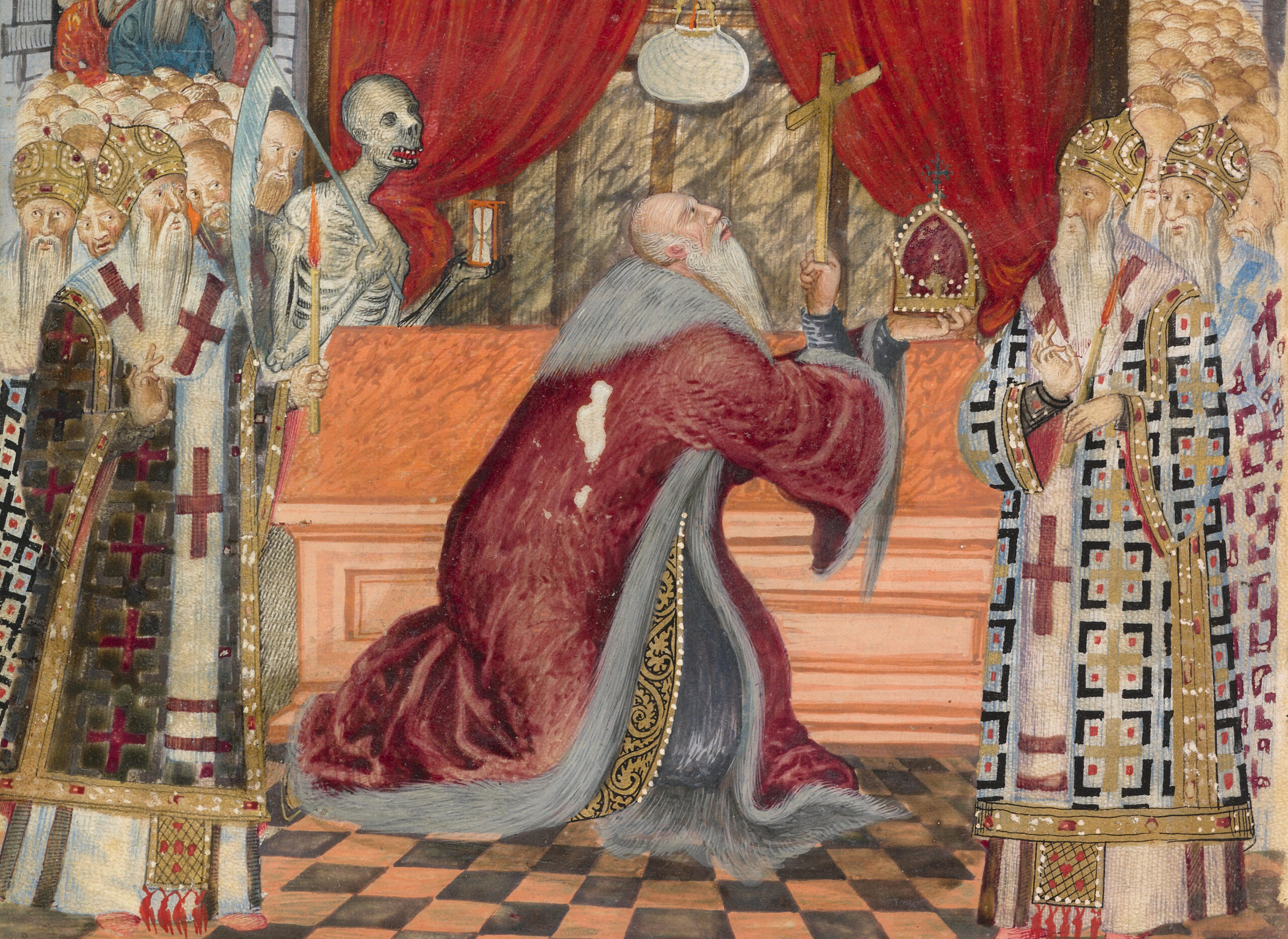Podcast episode
October 26, 2025
Episode 211: Introducing the Apocalypse of the Pseudo-Methodios, with Christopher Bonura

We begin our exploration of the seventh-century’s most important Christian apocalypse, that of Pseudo-Methodios. Christopher Bonura introduces this text, situating it in its Syriac (probably formerly-Sasanian Syriac) context, and discusses some of the politico-religious consequences of this context vis à vis Rome – and not only the New Rome, Constantinople, but the idea of Rome as an enduring locus for shifting identities, Christian, imperial, and more. This ideological evolution of Rome as an idea helps us understand one of the Pseudo-Methodios’ most important contributions to the western esoteric canon: the figure of the Roman Emperor to come at the end of days, who will deliver a final defeat to god’s enemies and then hand things over to Jesus at the second coming.
Interview Bio:
Christopher Bonura is assistant professor in the history faculty at Mount St Mary’s University. He has published widely on all manner of interesting topics, but with a focus on the Pseudo-Methodios. His newest book is an extensive monograph on the Syriac Methodios-tradition, its Nachleben, and similar matters, including a handy English translation of same.
Works Cited in this Episode:
Episode 196 with Anthony Kaldellis can be found here.
Christopher J. Bonura. An Apocalyptic Pamphlet Printed During the Ottoman Siege of Vienna (1683): Prophetic Authority in the Early Modern Christian Confrontation with Islam. In P. Fuschlberger, R. Kaske, and S. Reichlin, editors, Seismographen des Vertrauens? Positionsbestimmungen frühneuzeitlicher Bildpublizistik, pages 299–44. Steiner, 2024.
Idem. A Prophecy of Empire: The Apocalypse of Pseudo-Methodius from Late Antique Mesopotamia to the Global Medieval Imagination. University of California Press, Oakland, CA, 2025.
John J. Collins. Daniel. Hermeneia – A Critical and Historical Commentary on the Bible. Fortress Press, Minneapolis, MN/Augsburg, 1993.
Richard Landes. Lest the Millennium Be Fulfilled: Apocalyptic Expectations and the Pattern of Western Chronography, 100–800 CE. In Werner Verbeke, Daniel Verhelst, and Andries Welkenhuysen, editors, The Use and Abuse of Eschatology in the Middle Ages, pages 137–211. Leuven University Press, Leuven, 1988.
Tommaso Tesei. The Syriac Legend of Alexander’s Gate: Apocalypticism at the Crossroads of Byzantium and Iran. The University Press, Oxford, 2024.
Hanns Jacob Wagner von Wagenfels. Ehren-Ruff Teutschlands. University of Vienna, 1691.
Recommended Reading:
SHWEP Episode 211 Recommended Reading
Themes
Apocalyptic, East Rome, Giovanni Pico della Mirandola, Hagia Sophia, Interview, Islam, Joachim of Fiore, Monophysitism, Porphyry, Pseudo-Methodios, Rome, Sacred Kingship


Comments
Comments are open to SHWEP members only
Join now to comment
Already a member? Log in here